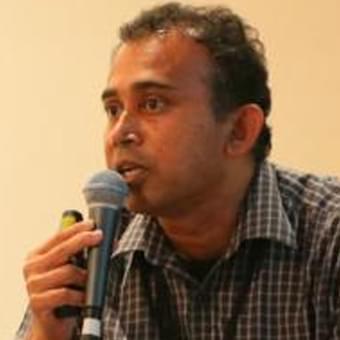Cutting Methane Gas from the Waste Sector, Crucial for Zero Carbon Societies in Asia and the Pacific
- English (Simultaneous interpretation)
- Climate Change, SDGs
Many governments have been declaring commitment and setting goals to achieve zero emissions by 2050. However, addressing carbon dioxide (CO2) alone is not enough. CO2 accounts for only half of global emissions and there needs to be a “two-basket approach”: zero emissions for long-lived gases (mainly CO2 and nitrous oxide) and stabilisation for short-lived gases (e.g. methane and black carbon). According to the recent Global Methane Assessment (2021), reducing human-caused methane emissions is one of the most cost-effective strategies to rapidly reduce the rate of warming and contribute significantly to global efforts to limit temperature rise to 1.5° C.
This session aims to discuss how countries can take actions in the waste sector to reduce methane to a level that is consistent with a 1.5°C pathway. In doing so it will also review how they have reflected this goal in a nationally appropriate way in their NDCs and other planning and strategy documents. In addition, the discussions will 1) analyse gaps and challenges (including trade-offs), and 2) provide a set of concrete recommendations for strengthening synergies, increasing ambition, advancing implementation action, maximising co-benefits and stimulating multi-stakeholder partnerships based on the experience of CCET and the CCAC in partnership with the government of Japan.
Director, The IGES Centre Collaborating with UNEP on Environmental Technologies (IGES/CCET), Japan.

Premakumara Jagath Dickella Gamaralalage
Director, The IGES Centre Collaborating with UNEP on Environmental Technologies (IGES/CCET), Japan.
Dr. Premakumara is a development planner, has over 25 years’ experience in working with academic, government, nongovernmental organisations, bilateral and international development agencies. Currently, he works as a Director of the IGES Centre Collaborating with UNEP on Environmental Technologies (CCET) at the Institute for Global Environmental Strategies (IGES), Japan and assists developing countries and cities in improving waste management systems in a more sustainable and circular manner. His work focuses on developing integrated/holistic waste management strategies at national and local levels, application of participatory learning and action tools and methods to promote 3Rs (reduce, reuse and recycling) and circular economy/ resource efficiency societies, integration of informal sector and gender participation in waste management, and linkages between waste and climate change as well as sustainable development goals (SDGs).
Chief, Solid Waste Management Division, Environmental Management Bureau, Department of Environment and Natural Resources, Philippines

Maria Delia Cristina M. Valdez
Chief, Solid Waste Management Division, Environmental Management Bureau, Department of Environment and Natural Resources, Philippines
MARIA DELIA CRISTINA M. VALDEZ is currently the OIC-Division Chief of the Solid Waste Management Division, under the Environmental Management Bureau and Concurrent OIC Executive Director of the National Solid Waste Management Commission Secretariat. She supervises and oversees the preparation of policies, monitoring and provision of technical assistance to the various stakeholders, among others. She was formerly the Chief of Staff of the Office of the Undersecretary for Solid Waste Management and Local Government Unit and Local Government Unit Concerns. She has been with the Department of Environment and Natural Resources for 25 years and co- authored several publications, which includes the National Strategy to Reduce Short-Lived Climate Pollutants from the Municipal Solid Waste Sector in the Philippines published in 2019
Associate Expert, United Nations Environment Programme, International Environmental Technology Centre

Misato Dilley
Associate Expert, United Nations Environment Programme, International Environmental Technology Centre
Misato Dilley joined UN Environment International Environmental Technology Centre in April 2020. The area of her work includes climate change, gender and waste management. Prior to joining UN Environment, Misato worked at UN-HABITAT in Nairobi and UNU-IAS in Tokyo. Misato holds a Masters degree in Planning for Sustainability and Climate Change as well as a Bachelors degree in Urban Planning.
Science Affairs Coordinator, Climate and Clean Air Coalition, UN Environment Programme

Nathan Borgford-Parnel
Science Affairs Coordinator, Climate and Clean Air Coalition, UN Environment Programme
Dr. Nathan Borgford-Parnell is an experienced science and policy communicator and environmental attorney. He helped found the CCAC Scientific Advisory Panel in 2012 and has overseen science affairs for the Coalition since 2017. He is also the coordinator of the Coalition’s new Methane Flagship. He serves on numerous advisory boards including the Scientific Advisory Panel for Clean Air for blue skies day.
He previously spent 8 years negotiating on behalf of small island developing states before the Montreal Protocol and UNFCCC. He earned his Juris Doctorate from the Washington College of Law and Master of Arts (M.A.) focused in International Affairs: Energy Security & Global Environmental Politics from American University: School of International Service.






